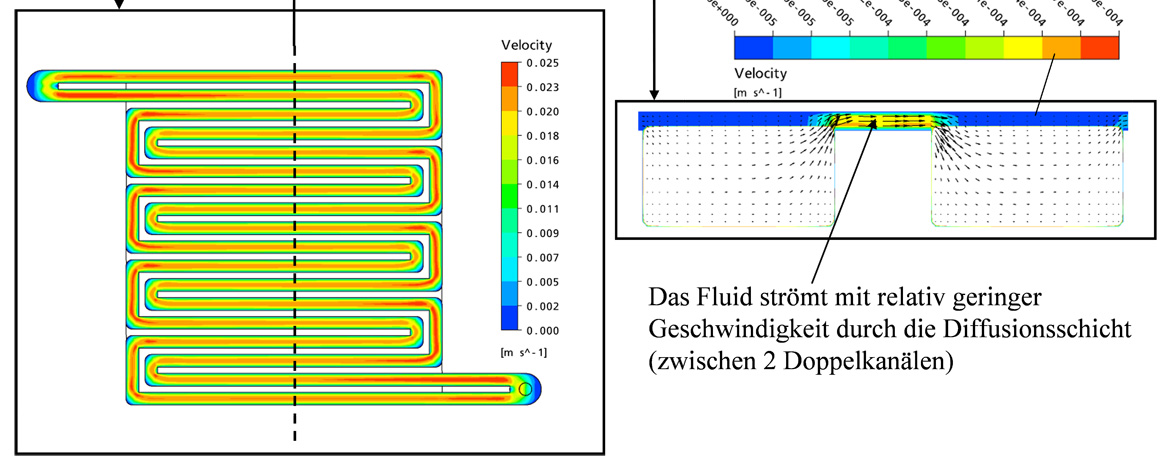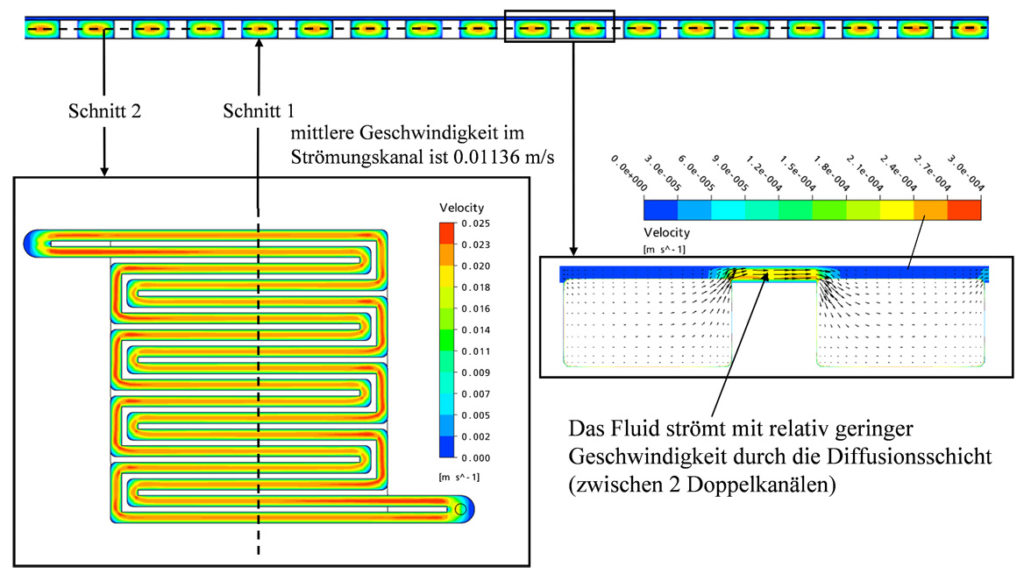Researching Fuel Cells

During the last 2 years, MET GmbH has developed state-of-the-art simulation tools for the analysis and optimization of the flow field of a gas distribution plate. The developments has taken into consideration the following: the special properties of the gas diffusion layer, the water transport and assembly of membrane pumps for water discharge, energy management through isolation, coupling of system components and the use of the external heat exchanger, and a hydrogen generator based on water reactive hydrides.
One focus of the BMBF (FKZ 03F0466F) funded development work was the development of a H2/H2O2-Fuel Cell Plant in cooperation with the ATI Küste GmbH and the Technical University of Berlin, which are used as a water or under water system to power special measuring system such as tsunami early warning systems. These projects simulation tools were successfully used to develop a prototype by using the flow field of gas distribution plates, and found that the efficiency of the hydrogen generator could be improved significantly.
For the simulation of processes in the hydrogen generator, a hydrogen formation reactions kinetic model was developed and implemented in CFD models. The flow, pressure drop and the reaction progress were simulated for different reactor types. From the results of the simulations, MET was able to share recommendations concerning the design of a hydrogen generator, taking into account such aspects as geometric details or necessary channel length to achieve a given reaction progress.
The water and energy management was also analysed by various means, such as the change in the arrangement of diaphragm pumps. The cooling circuit and material selection of the hydrogen generator were also successfully optimized.
MET’s unique simulation methodology allowed development of fluid-mechanical, thermodynamic and reaction kinetic analysis and design tools for major structural components of fuel cells, fuel cell stacks and hydrogen generators, providing a good basis for future requirements for a fuel cell system. The resulting boundary conditions, such as stationary states and non-stationary processes show how to analyse start-up or shutdown.
This raises the possibility of high-quality simulation-based engineering services for fuel cell developers and manufacturers to perform on a high level in the future.


